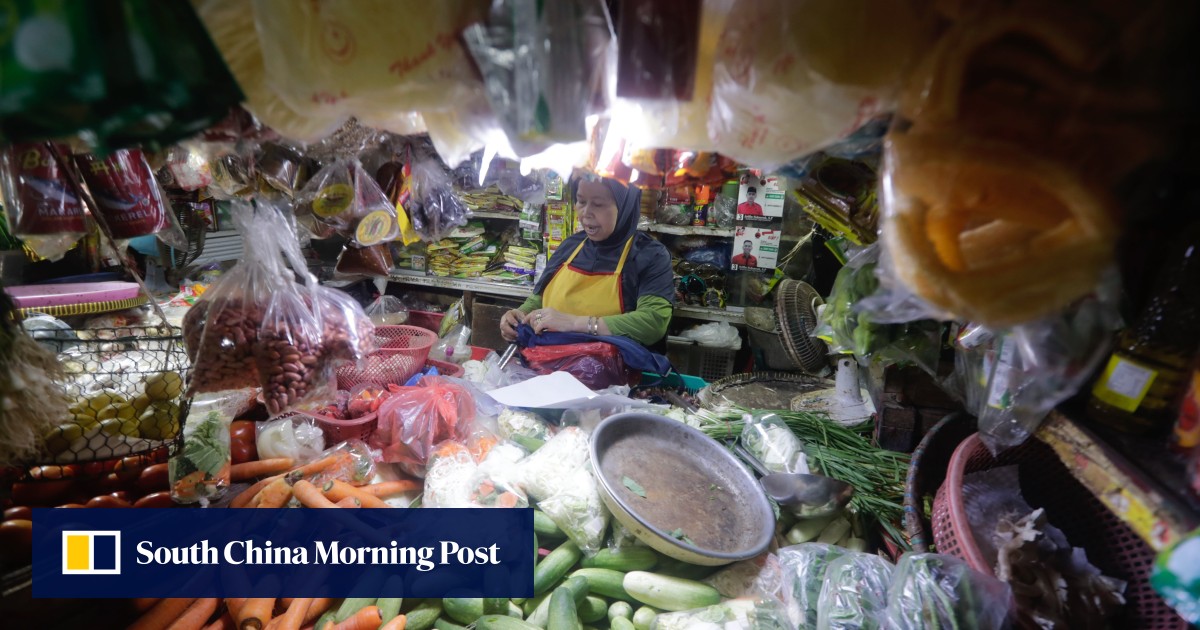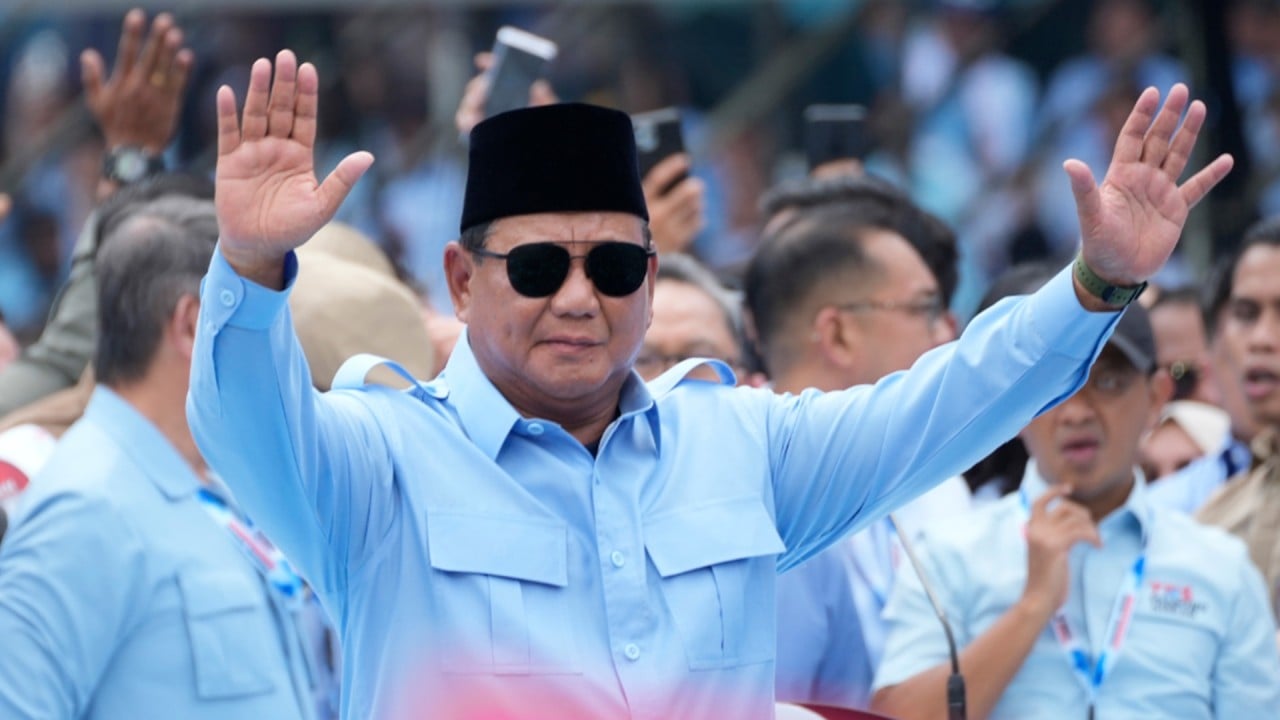Other economists and financial experts are not as bullish as Prabowo, either.
Indonesia’s economic growth has not held above 5 per cent since Widodo first took office in 2014.
“Our economy relies heavily on agriculture and the processing industry. Agriculture [output] has been disrupted by the weather, while labour absorption in the sector has actually weakened,” Bhima said.
“Farmers are not benefiting from rising food prices, with inflation at 8.4 per cent. In fact, in the next few years, we will import food in quite large quantities.”

Prabowo, 72, has also signalled that he could raise the budget deficit cap, which is set by law at 3 per cent of gross domestic product, and expand the government debt-to-GDP ratio from the current level of 38.11 per cent.
He made no mention of his preferred new deficit cap, but his campaign team implied in November it could be raised to 6 per cent of GDP.
In his speech, Prabowo also said he had sought advice from experts on potential new sources of tax revenue. Indonesia’s current tax ratio of around 10 per cent is lower than the Asia-Pacific average, which was 19.8 per cent in 2021, according to a report by the OECD issued last year.
Bhima of Celios, however, said that should Prabowo end up raising taxes for the country’s 52 million middle class, it might affect their purchasing power and household consumption, one of the main drivers of the Indonesian economy.
‘We refuse to work with it!’: Indonesians push back on country’s digital dreams
‘We refuse to work with it!’: Indonesians push back on country’s digital dreams
Esther Sri Astuti, executive director at the Jakarta-based Institute for Development of Economics and Finance, called Prabowo’s growth target “unrealistic” if it was not accompanied by fundamental reforms, such as an increase in exports of finished products, rather than raw materials, and pumping the brakes on imports.
“We can also interpret [his speech] as him planning to seek more foreign debts to fund his programmes, which I don’t agree with,” Esther said.
“I’m not anti-debt, but I want it to be used more wisely, less profligately … [Debt] should be used for productive things such as developing our human capital.”
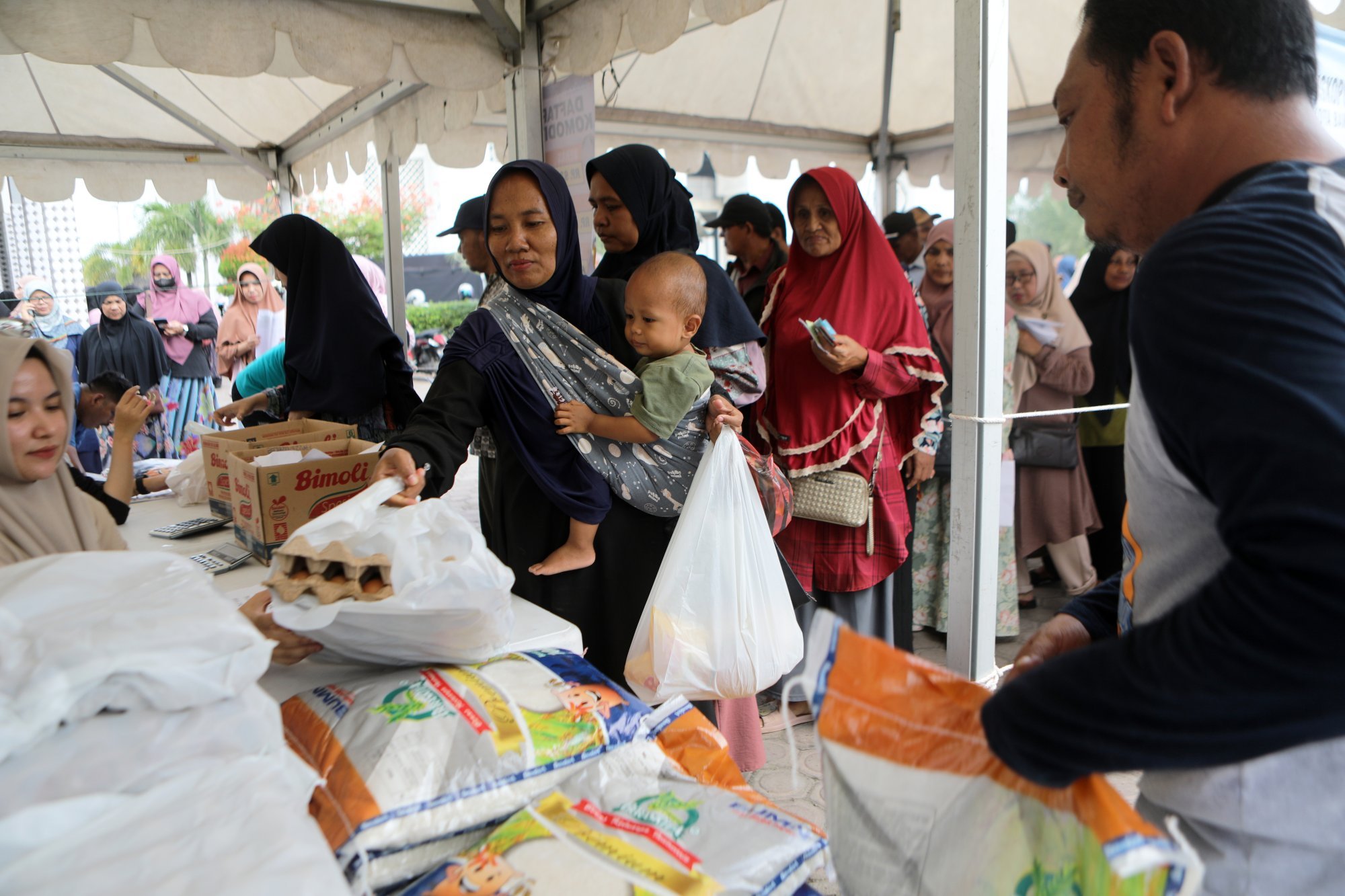
Major credit rating agencies Fitch Ratings and Moody’s have also sounded the alarm on Prabowo’s likely expansionary economic policy.
“We believe medium-term fiscal risks have risen, given some of Prabowo’s campaign pledges, including a free school lunch and milk programme that could cost around 2 per cent of GDP annually,” Fitch said in a February 20 research note.
“Prabowo’s statements that Indonesia could sustain a significantly higher government debt/GDP ratio also point to risks to our baseline fiscal projections.”
Prabowo revealed his grand plan to provide free school lunches for 82.9 million underprivileged children – estimated to cost 400 trillion rupiah (US$25.5 billion), or 12 per cent of Indonesia’s 2024 state budget – while campaigning.
Anushka Shah, senior credit officer at Moody’s Investors Service, said in a statement on February 15 that the free school meals programme “would mark a divergence from Indonesia’s long track record of conservatively managed budgetary finances and debt ratios”.
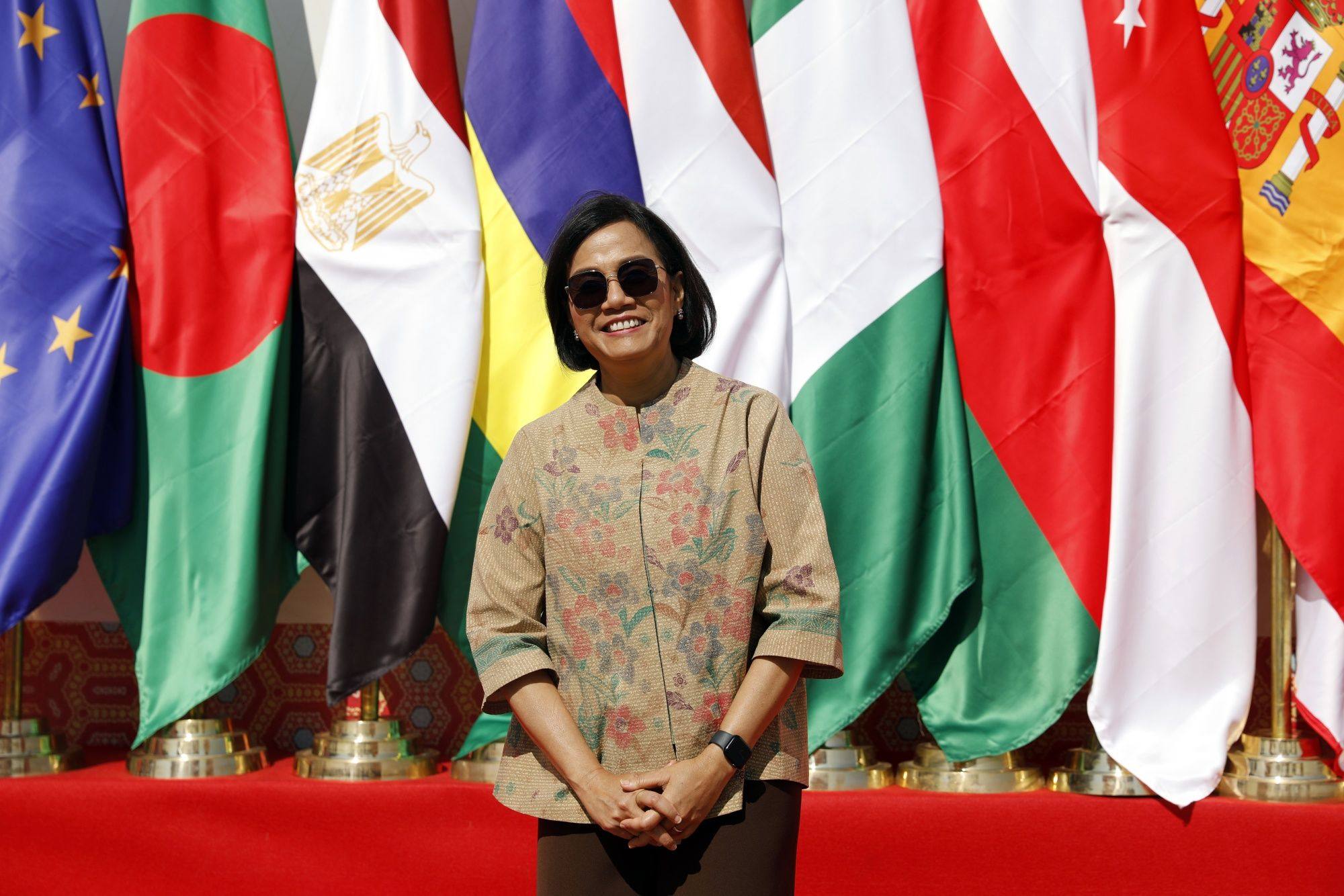
Tall tasks for next finance minister
Indonesia’s ability to maintain fiscal discipline in recent years could largely be credited to outgoing Finance Minister Sri Mulyani Indrawati, Bhima of Celios said.
However, it is likely that Sri, who has served as minister since 2016, will not join Prabowo’s new cabinet as the relationship between the two has reportedly soured since Widodo asked Sri to allocate more spending to social assistance programmes for the poor ahead of the election.
In December, Prabowo also revealed that some of his programmes to modernise the country’s ageing defence equipment were hindered by a lack of state funding, as officials focused on stabilising the pandemic-battered economy. This may have also hurt ties between Prabowo and Sri.
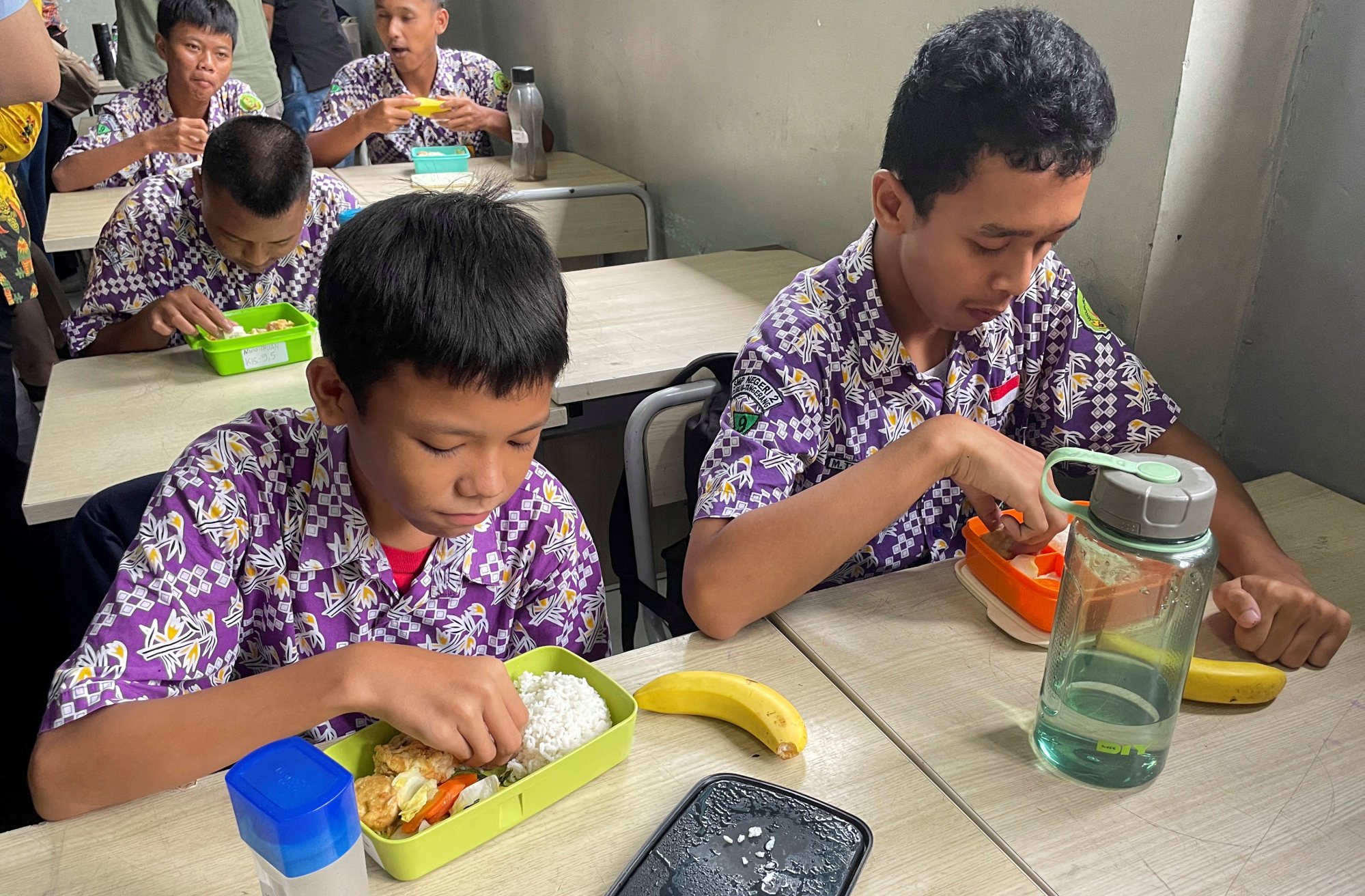
“The future minister of finance must act as a brake on Prabowo’s populist programmes. If you can’t apply the brakes, there will be fiscal pressure that will be felt by all economic indicators, and capital outflow will occur,” Bhima said.
The General Election Commission is expected to complete its official vote count and announce the official election winner on March 20, with Widodo set to inaugurate his successor on October 20.
Prabowo said during Tuesday’s speech that he was optimistic the transition of power “will be smooth”.

